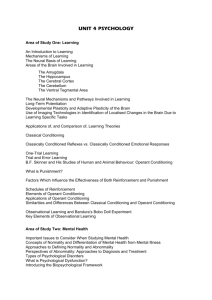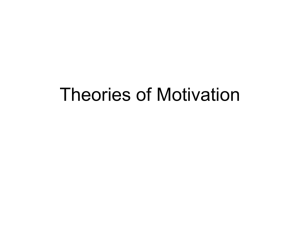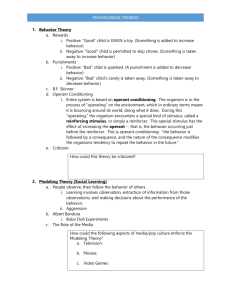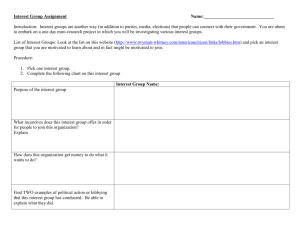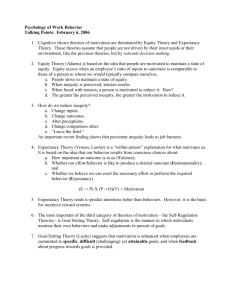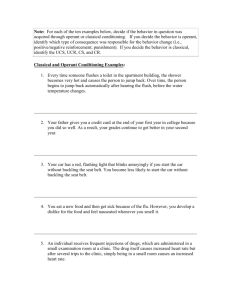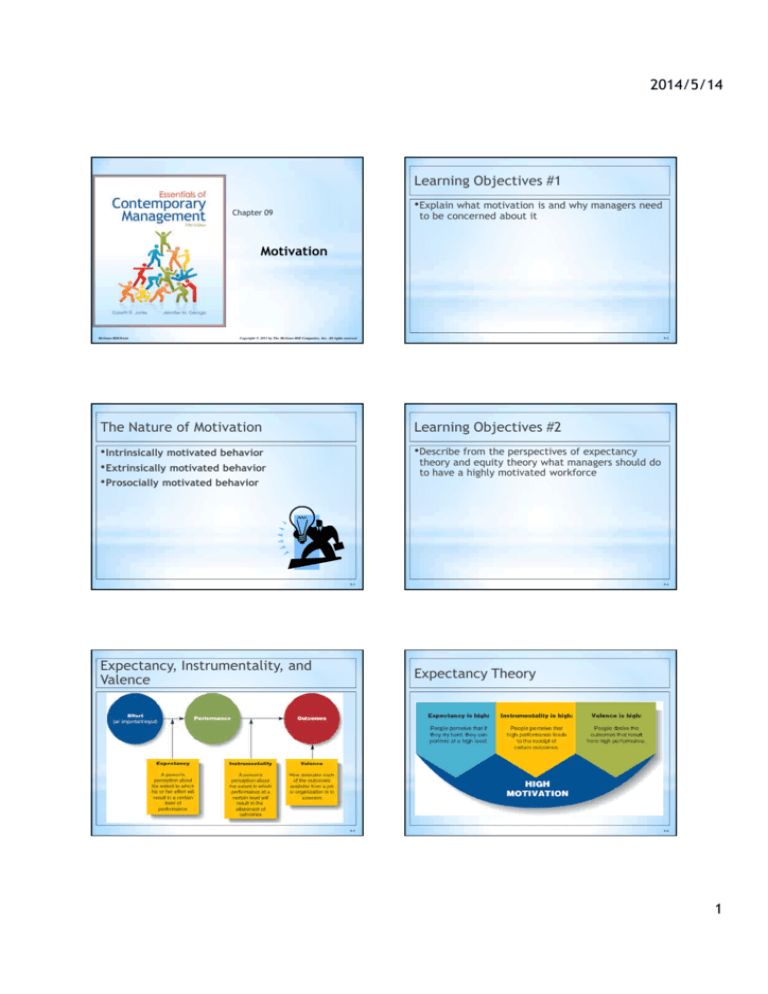
2014/5/14
Learning Objectives #1
•
Explain what motivation is and why managers need
Chapter 09
to be concerned about it
Motivation
McGraw-Hill/Irwin
Copyright © 2013 by The McGraw-Hill Companies, Inc. All rights reserved.
9-2
The Nature of Motivation
Learning Objectives #2
•
Intrinsically motivated behavior
•
Extrinsically motivated behavior
•
Prosocially motivated behavior
•
Describe from the perspectives of expectancy
theory and equity theory what managers should do
to have a highly motivated workforce
9-3
Expectancy, Instrumentality, and
Valence
9-4
Expectancy Theory
9-5
9-6
1
2014/5/14
Equity Theory
Learning Objectives #3
•
Underpayment inequity: Outcome–
input ratio is
•
Explain how goals and needs motivate people and
what kinds of goals are especially likely to result in
high performance
less than the ratio of a referent
•
Overpayment inequity: Outcome–
input ratio is
greater than the ratio of a referent
9-7
9-8
Need Theories
•
Theories of motivation that focus on what needs
people are trying to satisfy at work and what
outcomes will satisfy those needs
•
Mas
l
ow’
sHi
er
ar
chyofNeeds
•
Her
z
ber
g’
sMot
i
v
at
i
on-Hygiene Theory
•
McCl
el
l
and’
sNeedsf
orAc
hi
ev
ement
,Af
f
i
l
i
at
i
on,
and Power
9-9
Mc
Cl
el
l
and’
sNeedsf
orAc
hi
ev
ement
,
Affiliation, and Power
•
Need for achievement
•
Need for affiliation
•
Need for power
9-10
Goal Setting Theory
•
Cr
eat
i
nga“S
MART”Goal
•
Specific
•
Measureable
•
Attainable
•
Relevant
•
Timely
9-11
9-12
2
2014/5/14
Learning Objectives #4
Learning Theories
•
Identify the motivation lessons that managers can
•
Learning: A relatively permanent change in
learn from operant conditioning theory and social
learning theory
per
s
on’
sk
nowl
edgeorbehav
i
ort
hatr
es
ul
t
sf
r
om
practice or experience
•
Operant Conditioning Theory
•
Social Learning Theory
9-13
Operant Conditioning Theory
Positive reinforcement
Social Learning Theory
•
Vicarious or observational learning
•
Self-reinforcement
•
Self-efficacy
Negative reinforcement
•Giving people outcomes •Eliminating undesired
they desire when they
perform organizationally
functional behaviors
•pay, praise, promotion
9-14
outcomes when people
perform organizationally
functional behaviors
•manager’
scons
t
ant
nagging or criticism,
unpleasant assignments,
t
hr
eatofl
os
i
ngone’
sj
ob
9-15
9-16
3



